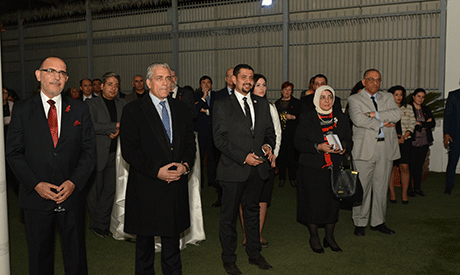
Anti HIV discrimination event at Embassy of Netherlands, Cairo
Each year, countries start the month of March by celebrating Zero Discrimination Day, focused on people living with HIV.
Voices across the globe call for no one to be left behind when it comes to treatment, and Egypt was no different.
At the premises of the Netherlands Embassy in Cairo, an event was held to highlight the cause, where officials from the UN and the government attended along with members of civil society and representatives of 50 development partners.
The attendees highlighted national and international efforts at ending discrimination, within the remit of an ambitious plan to end AIDS by 2030.
The event's host, Dutch Ambassador Laurens Westhoff, was the first to speak, underlining the role of all international parties in collective efforts to end HIV.
"This is part of The Netherlands' contribution to the UN's sustainable development goals to achieve a better integrated approach to reproductive health and HIV," he said.
According to a global report released by UNAIDS, the number of new HIV infections in 2015 was estimated to be 2.1 million.
Statistics issued from UNAIDS Egypt in 2014 indicate that the number of registered people living with HIV inside Egypt is almost 8,800.
The estimated number of people living with HIV inclusive of those not registered is 11,000.Dr Maissa Shawky, deputy minister of health and population, said steps were already taken by the government to ensure treatment for all, but added that there is still more to be done to reach zero discrimination, eradicate stigma and shore up prevention coverage.
UNAIDS Egypt country manager Dr Ahmed Khamis seconded Shawky's words, stating that although strides have been made in Egypt with regards to treatments and services, more has to be done to end discrimination and reach the goal of zero HIV by 2030.
"Let's not let discrimination halt our effort. The right of access to health services for everybody is not negotiable," Khamis said.
Short link: